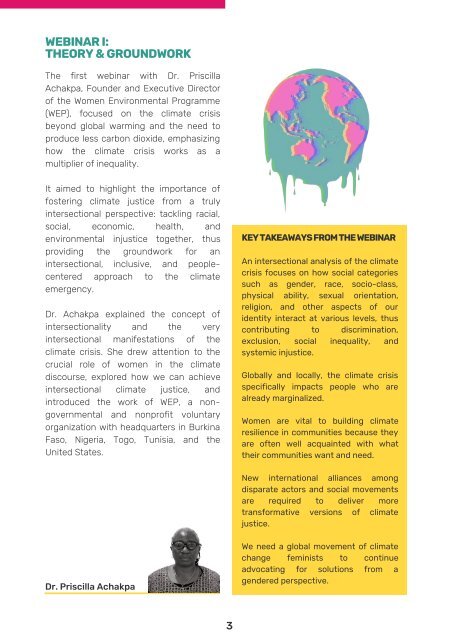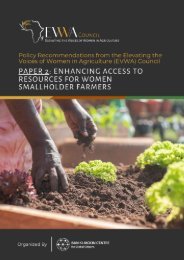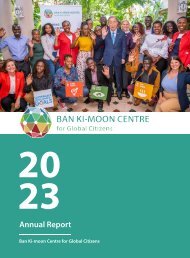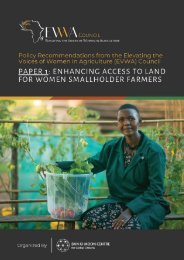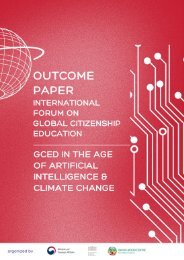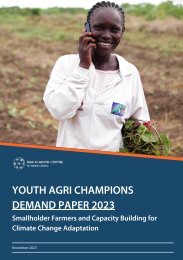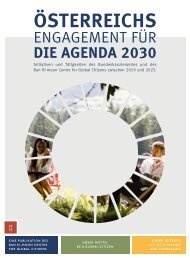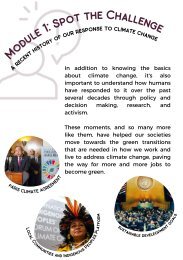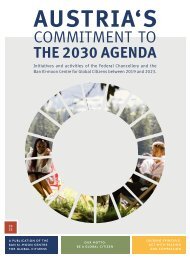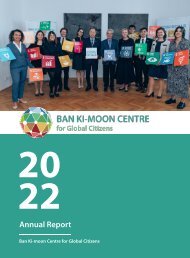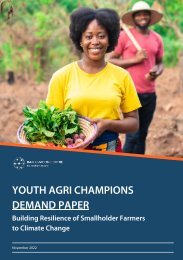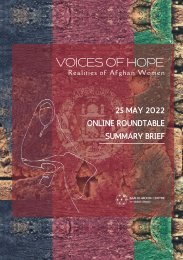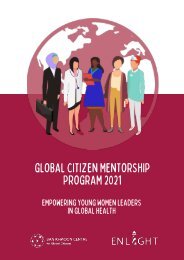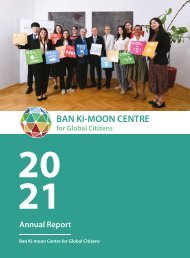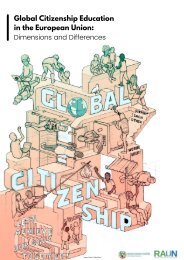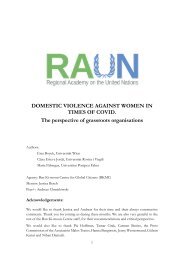Policy Brief - Climate Justice 4 All
You also want an ePaper? Increase the reach of your titles
YUMPU automatically turns print PDFs into web optimized ePapers that Google loves.
WEBINAR I:<br />
THEORY & GROUNDWORK<br />
The first webinar with Dr. Priscilla<br />
Achakpa, Founder and Executive Director<br />
of the Women Environmental Programme<br />
(WEP), focused on the climate crisis<br />
beyond global warming and the need to<br />
produce less carbon dioxide, emphasizing<br />
how the climate crisis works as a<br />
multiplier of inequality.<br />
It aimed to highlight the importance of<br />
fostering climate justice from a truly<br />
intersectional perspective: tackling racial,<br />
social, economic, health, and<br />
environmental injustice together, thus<br />
providing the groundwork for an<br />
intersectional, inclusive, and peoplecentered<br />
approach to the climate<br />
emergency.<br />
Dr. Achakpa explained the concept of<br />
intersectionality and the very<br />
intersectional manifestations of the<br />
climate crisis. She drew attention to the<br />
crucial role of women in the climate<br />
discourse, explored how we can achieve<br />
intersectional climate justice, and<br />
introduced the work of WEP, a nongovernmental<br />
and nonprofit voluntary<br />
organization with headquarters in Burkina<br />
Faso, Nigeria, Togo, Tunisia, and the<br />
United States.<br />
KEY TAKEAWAYS FROM THE WEBINAR<br />
An intersectional analysis of the climate<br />
crisis focuses on how social categories<br />
such as gender, race, socio-class,<br />
physical ability, sexual orientation,<br />
religion, and other aspects of our<br />
identity interact at various levels, thus<br />
contributing to discrimination,<br />
exclusion, social inequality, and<br />
systemic injustice.<br />
Globally and locally, the climate crisis<br />
specifically impacts people who are<br />
already marginalized.<br />
Women are vital to building climate<br />
resilience in communities because they<br />
are often well acquainted with what<br />
their communities want and need.<br />
New international alliances among<br />
disparate actors and social movements<br />
are required to deliver more<br />
transformative versions of climate<br />
justice.<br />
Dr. Priscilla Achakpa<br />
We need a global movement of climate<br />
change feminists to continue<br />
advocating for solutions from a<br />
gendered perspective.<br />
3


